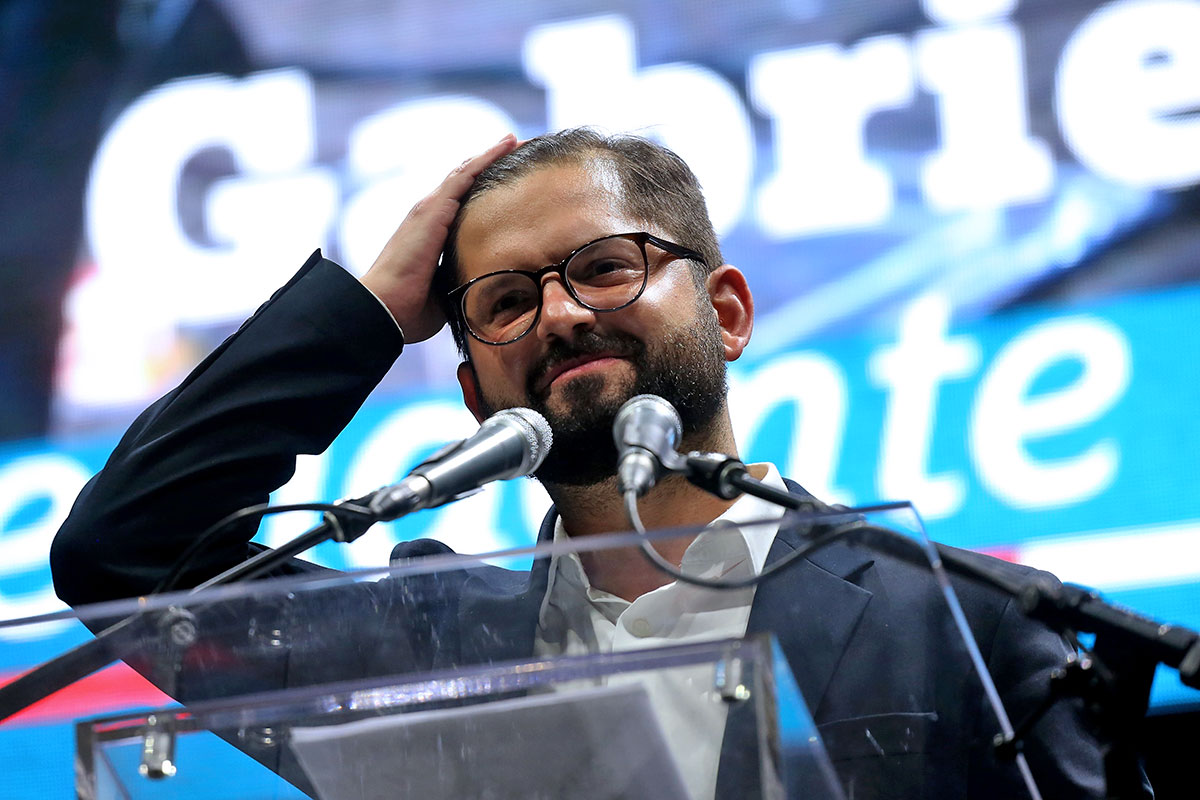RIO DE JANEIRO, BRAZIL – The far-left congressman Gabriel Boric will be the new president of Chile, who will have to lead the transition to the country model enshrined in the future Constitution and address the yearnings for social change that have propelled him to the mandate after defeating the religious conservative José Antonio Kast this Sunday in a polarized election.
Boric swept the polls with 55.86% of the votes against 44.14% of his opponent’s, with more than 99% counted, and added Chile to the group of Latin American countries that have turned to the left in recent years, together with Argentina, Bolivia, Honduras, Mexico, and Peru.

With more than 4.6 million votes out of the more than 8.3 million voters who went to the polls, Boric became the president-elect who accumulated the most votes in the history of the country, on a day in which the highest percentage of participation was registered in Chile since voting became voluntary in 2012, exceeding 55%.
This, despite a heat of Justice that reigned throughout the day and the mobility problems caused by public transportation, which were criticized by both candidates.
The representative of the coalition Apruebo Dignidad, who has the support of the Communist Party, will be the most leftist president to occupy the seat of government, the Palacio de La Moneda, since Salvador Allende (1970-1973), and the youngest to hold the first magistracy in more than 200 years of history.
On March 11, 2022, when he will be 36 years old, Boric – born in the southern city of Punta Arenas and descended on his father’s side from Croatian immigrants – will replace the conservative Sebastián Piñera as President of the country.
Boric embodies a change of political era in Chile, leaving behind the traditional center-right and center-left coalitions that have shared power for the last 30 years and handing over that leadership for the first time to a recently created formation that gathers citizen discontent with the institutions.
It represents a generation that barely lived under the regime of Augusto Pinochet (1973-1990) that repudiates the neoliberal model consecrated by the dictator to date, and that aspires to transform the country into a welfare state with solidarity pensions, universal health, and promotion of social rights, for diversity, minorities and the environment.
“We are facing a historic change of cycle”, said Boric in his first speech as president-elect.
BORROWED” VOTES FROM THE CENTER-LEFT
The demand for these changes for which the country erupted in a severe wave of protests in October 2019, and Boric the candidate who promised to transit towards that new Chile in his program.
But, after arriving at the ballot this Sunday in second place, with 25.83% of the votes to the 27.91% obtained by Kast – defender of the neoliberal model and traditional values – he needed to make concessions to the center-left voter to take the “borrowed” vote of voters who do not want a revolution, but who saw in Boric a less harmful option than that of the ultraconservative.
“to know how to combine strength, idealism, the spirit of youth with prudence”.
Kast had already congratulated him by telephone, recognizing his “great triumph” and assuring him of his “respect and constructive collaboration”.
A GOVERNMENT WITH GREAT CHALLENGES
In the second part of the campaign, Boric nuanced his electoral promises; they are adding more gradualism to the ambitious goals of tax collection of 8% of GDP in 8 years and recognizing that the changes need a time process.
Those who supported him from more moderate sectors will be very vigilant with him, but he will also face pressure from his allies in the Communist Party, the more radical left, and those who trusted him to change the country.
He will also collide with a very fragmented Congress, but in which the sum of left and right is almost tied, which will force arduous agreements and negotiations to move forward.
“Substantive advances to be solid are going to require broad agreements, and that to last has to be rung by rung,” Boric said tonight.
He will find a country whose economy is set to grow by around 12% this year, after falling 5.8% in 2020 – the worst drop in four decades – due to the pandemic, but for the years 2022 and 2023, the country’s Central Bank projects a sharp slowdown, of 1.5% and 2.5%, and between 0.0% and 1.0%, respectively. Meanwhile, the inflation rate for the last 12 months is 6.7%, the highest since 2008.
Meanwhile, Boric will have to implement the constituent process carried out by the Convention that drafts a new Magna Carta, which in 2022 will be submitted to a referendum for its approval or rejection, and whose composition is of the progressive majority.
“His government gives us the certainty of respect for the autonomy and the work of the Convention,” said the constituent Constanza Schonhaut about Boric, who was one of the drivers of the political agreement that in November 2019 opened the constituent process in the country.

